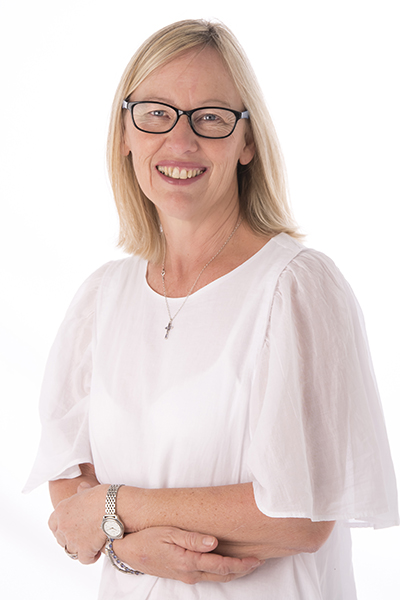Latest News Archive
Please select Category, Year, and then Month to display items
04 October 2024
|
Story Dr Cindé Greyling
|
Photo Supplied
 Scan the QR Code to unlock 30 days of exciting challenges to enhance your mental well-being.
Scan the QR Code to unlock 30 days of exciting challenges to enhance your mental well-being.
During October this year, the University of the Free State (UFS) Department of Student Counselling and Development (SCD) invites all staff and students to play an active part in their own mental health. Every day. You can do one small thing each day to improve your mental health. That is why the campaign is called DoDay – do something today and make it a do
day.
For 30 days, doable mental health activities will be shared on the UFS and SCD Instagram and Facebook pages. You will be invited to participate in the activity and to share your experience online. We encourage you to take up the challenge and share the skills for better mental health.
Be successful
As we approach the mid-year exam when staff and students are experiencing added pressure and anxiety, it is the perfect time to dedicate 10 to 15 minutes daily to your mental health. Each week we will focus on five different mental health building blocks: social wellness, emotional wellness, intellectual wellness, physical wellness, and spiritual wellness. By participating in the different activities each day, you will cover all the different wellness areas.
Be informed
During the campaign, we will also release insightful podcast interviews with experts who share their personal and professional experiences with each wellness area. It is no secret that communities are stronger together. Let us all work towards collectively improving our mental well-being and supporting one another on this journey.
Be happy
Improved mental health supports your professional and academic performance. It also helps you to make better decisions and enjoy life more. Improving your mental well-being has never been easier than following the DoDay calendar. You will receive clear guidelines on what to do each day, and you can mark off your progress and share your activities as you go.
Be a DoDay-er
Remember that maintaining mental well-being is like brushing your teeth, so we recommend it daily! Join the UFS Mental Health DoDay drive and take one small daily action for 30 days towards better mental health. Download your 30-day DoDay calendar – and remember to share and inspire others. Make every day a Mental Health DoDay
UFS Expert: Prof Felicity Burt investigates zoonotic and arboviruses
2017-12-13

Prof Felicity Burt recently received a B-rating from the
National Research
Foundation.
Photo: Sonia Small
Prof Felicity Burt is from the Division of Virology in the Faculty of Health Sciences at the University of the Free State (UFS), as well as the National Health Laboratory Services (NHLS). She currently holds an NRF-DST South African Research Chair in vector-borne and zoonotic diseases. Professor Burt and her research group investigate arboviruses and zoonotic viruses.
Prof Burt’s research primarily focuses on host immune responses to arboviral infections specifically characterising humoral and cellular immune responses in patients with infections such as Crimean-Congo haemorrhagic fever (CCHF) virus and Sindbis virus; epitope discovery for development of diagnostic tools; development of molecular and serological assays for surveillance purposes; virus discovery; and the development of vaccines.
Raising awareness of these viruses, defining associated diseases, and developing tools for surveillance programmes will contribute to understanding these pathogens as well as the public health implications.
Leads research group in papilloma viruses
Arboviruses cause outbreaks of disease in South Africa annually. Outbreaks are usually associated with heavy rainfall favouring the breeding of mosquitos, but these viruses also have the capacity to spread and become endemic in new areas where competent vectors are present.
In addition, she is leading a research group that investigates human papilloma viruses (HPV) associated with head and neck cancers and recurrent laryngeal papilloma.
The focus of this research group is to ascertain the genotypes of HPV causing these diseases, identification of novel biomarkers for early detection, and complete genome sequencing for molecular characterisation of HPV isolates.